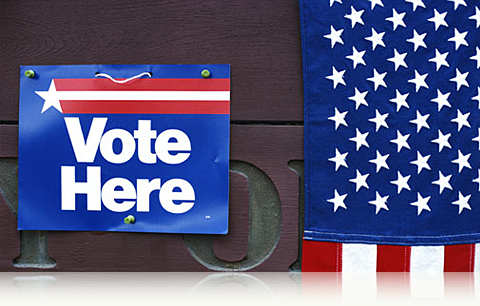
The Stupidest Season
One of the rules of the game when it comes to choosing a candidate for the presidency of the United States is that the public must engage in a collective fiction. This fiction is that we are all an engaged body politic, well-versed in the issues that confront us, and most importantly, that traipsing to the polls, holding caucuses and such is a demonstration of our committment to democracy.
We abet this fiction with the presence of the media, who descend on previously unknown towns to talk to the man (or woman) in the street, spending thirty seconds and a reference to the latest polls in order to shape a narrative about the Issues That Confront Our Country. It is a relationship that is topped off by politicians of all stripes, who are the primary actors of this fiction: the kissing of babies, the town halls and the nodding of heads, all in a choreographed dance between the media and the people. Some fail, others succeed, but a dance and a three-way relationship it is.
And it’s also a given that during the campaign season, the public never wants to be pragmatic or reasoned. Since our engagement in the political process (as a whole) is limited to appearing concerned about the Issues that Confront Our Country, we return to our lives after the dance is over, the band disperses and the last person to leave the town hall turns out the lights. During this season, the public voices its dreams and aspirations, holding politicians to ever-higher standards of idealism and eschewing the true pillars of our democracy: compromise and brokering deals.
Now, when it comes down to the issues of the real world and the true exercise of American power, Democrats and their supporters do not like to hear the word “realpolitik.” For them, it’s a dirty word, something to be avoided at all costs. Instead, voters prefer to talk about their feelings, mistaking true enthusiasm for an effective way of governing a country. While there’s nothing wrong with believing in a candidate, voters are having their concerns wrapped inside a media narrative that avoids any hint of pragmatism and focuses strictly on easily digested buzzwords and preconceived notions. So for Republican voters, we hear of « conservative » values (religion, abortion, homosexuals, immigrants) and their disdain for anyone who doesn’t fit the bill. For Democrats, we hear of nothing but feel-good sentiments and the invocation of JFK. Both stories, while holding some semblance of truth, are ultimately media concoctions focusing more on style than substance. Given this storyline, we’re left with stark choices: reactionary versus progressive, right versus left, or evangelism versus godless secularism. You would never know that power in this country often relies on compromising to achieve goals.
To be sure, there are plenty of voters who know this isn’t the case, and there are just as many politicians who rely solely on sentiment to sway people. It is foolish to believe that people vote with a command of every issue: they don’t. It is equally ludicrous to think that a politician marches into Washington and never changes. Yet we often think of this as a zero-sum game, and the media furnishes us with a flurry of talking points that reinforce this idea. This is why so many of us are willing to overlook pragmatism and realism for fantasy and idealism. It allows liberals to consider “ red state” voters are monolithic and ridiculous, and conservatives to see nothing but the end of western civilization with those latté-swilling weaklings on the East and West coasts. The unfortunate byproduct of this is increasing polarization of the populace, taking ugly and viscious turns.
So, what is to be done? There is no answer, because this dance is taught to us at a very young age, which is why we are a ultimately a representative democracy and not a true participatory one. (This is partly an oversimplification given our complex society.) True, there are scores of us who hear the call of public service and want to represent our town, city or state at all levels of government. But for the majority of us, we prefer to relegate our concerns to a thirty-second spot in front of a camera, talking about our dreams and our wishes and appearing to be serious in Studying the Issues. Yet that too, is a part of the overall narrative during a campaign season, and we are unwilling to break out of it. So we voice those aspirations, politicians hear them, the media reports them and the cycle beings again as the drive of a campaign waxes and wanes. We want politicians to make us feel good, and then subsequently complain they don’t get anything done once in office. We want to believe that candidate X is the messiah and not bother with how power is exercised in this country. We want to see the enemy as the Other Voter who is simplistic in his thinking and has outmoded or ridiculous values, which is precisely what he thinks in turn about his compatriots. And no one wants really to change this, because that requires too much work.